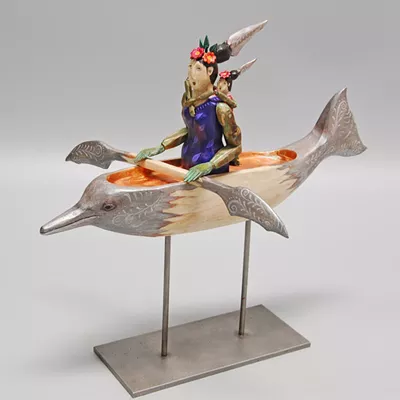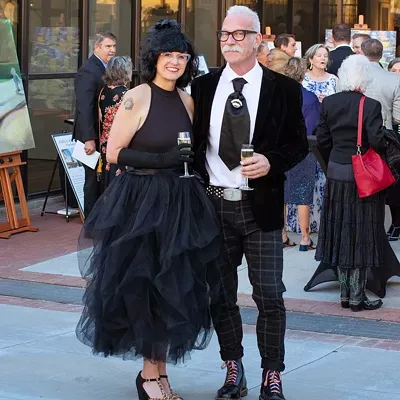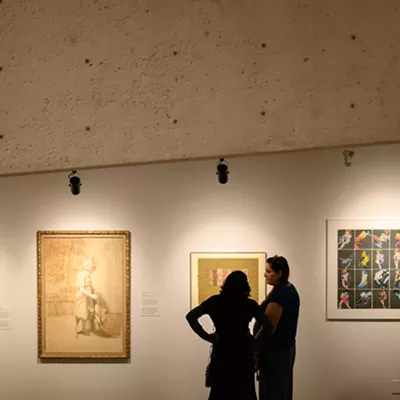So, you've got an idea for a play, or a screenplay. Or you are a director wanting to make sure you pay the greatest respect to a writer's words and ideas. You've got experience working in such media. But what's the best way to make sure the story you want to tell is communicated in the most effective way?
Howard Allen would say "21st century storytelling." And he says it's really a new template for the process of developing a more complete and effective—and authentic – way of storytelling.
Allen, who holds an MFA in Playwriting, Screenwriting and Criticism from the University of Arizona, is an actor, director, college level instructor and journalist, including being the former editor of the Tucson Weekly. He has been focusing on analyzing screenplays for clients for years now. He is known as the Script Doctor and his service has been rated No. 1 Cream of the Crop in a national Survey of Analysts/ Consultants by "Creative Screenwriting" magazine. He also has a film production company, Coyote Moon, which focuses on developing and creating indie-type documentary and often small budget films. He is invited to speak regularly at conferences and workshops about his work, and he has a new screenplay with Kinga Gaspers, Madam Nijinsky, in development in L.A.
Allen says in all his work he aims "to honor and aid the storyteller." Now, in an effort to develop and share his insights, he is an originator of the new Institute of Collaborative Storytelling, and this week the first ICS conference is being held here.
The performing arts in general are by nature collaborative. For theater you have a play, actors, designers and then a director that coordinates all the elements into the director's vision of the piece. It's a similar story in film, but perhaps with even more rigid delineated roles. But as he met and communicated with other experts in conferences all over the country, Allen began to be attracted to a different approach to "creating story."
"Those distinctions of writer, actor, director is what ICS is about changing. It's not about your role as a designer, your role as an actor, your role as a director. It's about how all of you can contribute to story, which is the bottom line of what you're trying to do. If you don't get trapped in these roles you get enormous benefit. Removing these roles celebrates the storyteller in a way that makes us better people. I think it's more human to share in the joy of collaboration."
So it seems that the word "story" has a bigger meaning than what we traditionally think of.
"Yes. Story is a lot more than people realize." And that's what he was planning to address in the first session of the workshop.
"All my life I've been fascinated by storytellers. An actor is a storyteller; so is a writer; so is a designer. Everyone can be a storyteller if they step outside traditional roles to contribute to the overall story. Sharing makes us more human and sharing creates empathy and empathy creates community. So story creates community. "
Allen cites some examples of this kind of storytelling which has resulted in much lauded work. "The play that just won the Tony Award for Best Play, 'The Curious Incident of the Dog in the Night-Time,' is an example. Mike Leigh's film, 'Mr. Turner,' is, as well. The hit Broadway show, 'Hamilton,' is hip-hop language being used to portray the founding fathers of the United States when they were young men. And it's fabulous."
He also referenced a Broadway musical many of us are familiar with, "A Chorus Line."
"Some folks decided to do some research on the gypsies of Broadway, the dancers in musicals. But they began to see that there was actually a story here. So a writer was consulted, and composers and lyricists, and eventually it developed into one of the most popular musicals ever.
"It can also be called ensemble-created works, or devised theater. Borderlands Theater, led by Marc David Pinate now, is developing a project about the barrio, which was destroyed when they built the downtown community center here. His folks are going into the neighborhoods, talking to those who live there, collecting stories about those who had lived there. There are many people contributing to the process, including the actors," which will lead to an on-site theatrical event.
And that's another important element in collaborative storytelling, Allen says. "Collaborative storytelling emphasizes process, not product."
Royce Sparks, an internationally known actor and instructor who lives in Tucson, has teamed with Allen to put together this initial ICS intensive. Each day of the four day event begins with a discussion of various topics, like "The Ethos Of Collaborative Work" and "Language Into Character Into Story." Group work sessions are scheduled for the afternoon and evening, with four groups of four participants each. With guidance from Allen and his colleagues, the hope is that participants will discover the effectiveness—and the joy—of this approach. Allen and Sparks hope this will become an annual affair.
Allen understands that there may be some resistance to this way of working, that folks think this approach might result in a kind of chaos. He's not worried. "Chaos is not necessarily a bad thing. It's really just another way of thinking outside the
box."







